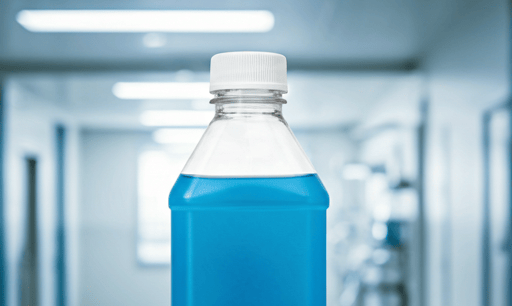An Innovative Biocide by Solenis' for Sterilizers and Pasteurizers
SUSTAINABILITYDAIRY & ALTERNATIVES BEVERAGES


In sterilizers and pasteurizers, maintaining microbiological control is a critical challenge, particularly in food and beverage processing. Microorganisms can grow within process liquids, leading to contamination, biofilm formation, and operational inefficiencies such as increased energy consumption, higher chemical usage, and frequent equipment cleaning. Traditional biocides like sodium hypochlorite, peracetic acid, and quaternary ammonium compounds often prove inadequate due to their limited effectiveness in varying pH or temperature conditions. These substances may also accelerate equipment corrosion, generate harmful disinfection byproducts, and struggle to sufficiently reduce biofilm buildup. These limitations underscore the need for a more robust and efficient solution to microbial growth control.
Tackling these challenges, US-based Solenis Technologies has innovated an filed a patent application on introducing monochloramine as a biocide for use in sterilizers and pasteurizers. Monochloramine offers broad-spectrum microbial control, effectively targeting bacteria, molds, and spores, even under high organic load conditions. Unlike traditional biocides, it performs well across a wide range of temperatures, pH levels, and water qualities, ensuring reliable and consistent microbiological control.
One of the most significant advantages of this approach is its ability to minimize corrosion in sterilizers, pasteurizers, and food or beverage containers, particularly aluminum cans. Monochloramine also reduces biofilm buildup and promotes biofilm removal, streamlining operations. This leads to improved heat transfer during sterilization and pasteurization, which reduces energy consumption and operational costs. Additionally, the effectiveness of monochloramine at low concentrations (as little as 1–10 ppm) minimizes the need for supplemental chemicals, making the process more environmentally friendly.
The monochloramine-based process is also practical and versatile. It can be introduced into various zones of sterilizers and pasteurizers, including heating, treatment, or cooling zones, and is especially suitable for continuous systems like tunnel pasteurizers. The compound can be produced on-site via controlled reactions or transported from off-site facilities, offering flexibility in implementation.
Overall, this new method enhances food and beverage safety while reducing costs, simplifying maintenance, and promoting sustainability. By addressing the limitations of conventional biocides, monochloramine provides a reliable and efficient solution for microbiological control in sterilization and pasteurization processes.
Currently, Solenis offers this product under their Biosperse™ chlorine stabilizer range which when used with sodium hypochlorite generate monochloramine for disinfection.
